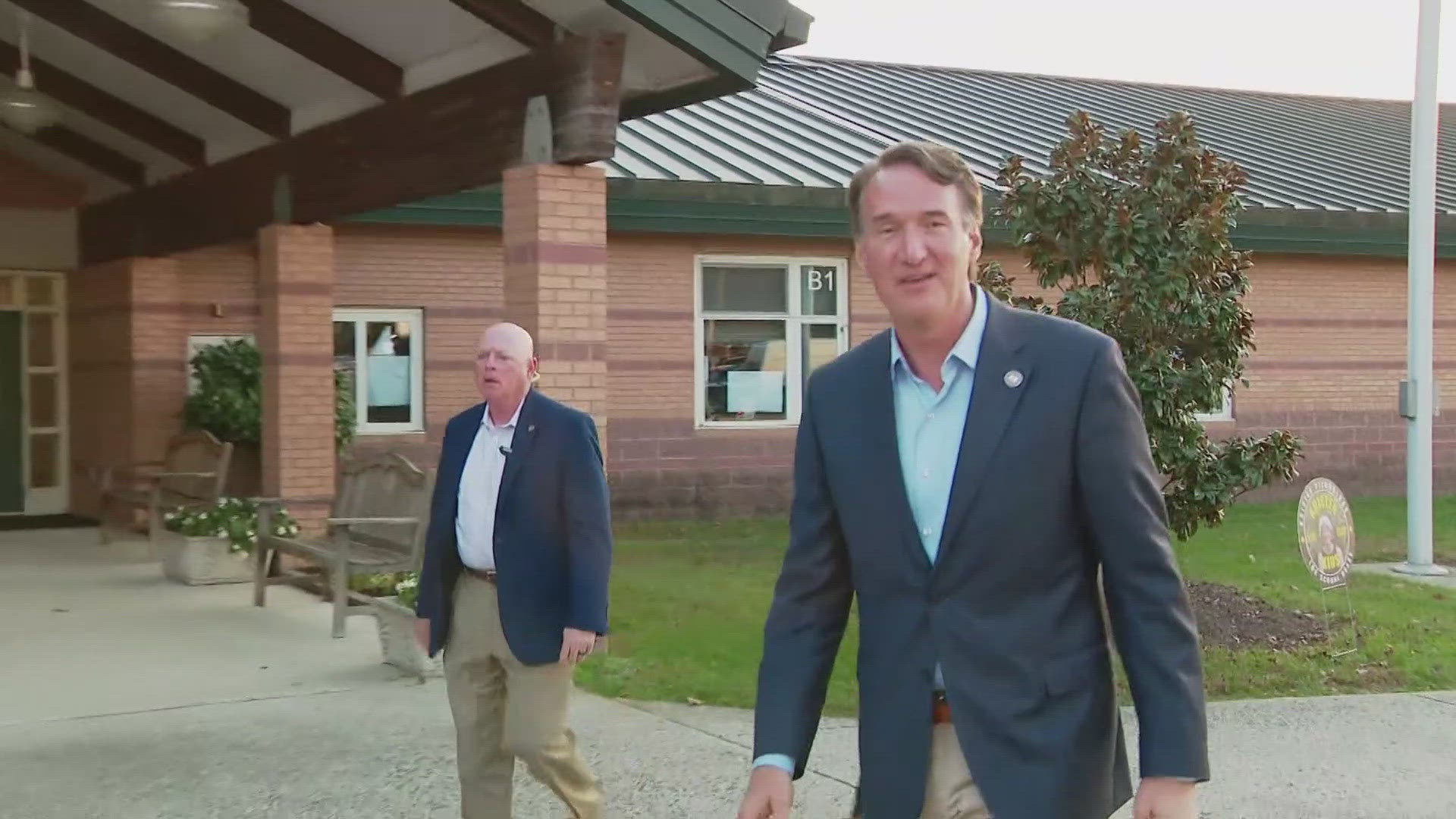ALEXANDRIA, Va. — After a lengthy court hearing in a federal courtroom in Alexandria, a judge is expected to decide on the future of a controversial executive order by Gov. Glenn Youngkin on Friday.
The governor issued an executive order on Aug. 7 to remove noncitizens from the voter roll in Virginia. It was revealed in court that since August, more than 1,600 Virginians had their registration canceled.
However, the U.S. Department of Justice and several groups sued Virginia, arguing the order is illegal and discriminatory. In court Thursday, attorney Sejal Jhaveri said the Commonwealth violated a federal law when it systematically purged Virginians during a 90-day “quiet period” before the November election. This period prevent programs like this within the 90 days to avoid mistakes that would disenfranchise eligible voters with little time to properly fix.
“That’s because they’re flawed and they end up kicking citizens off the rolls,” plaintiff attorney Brent Ferguson said
Ferguson also questions the claim of 1,600 noncitizens purged.
The order requires the DMV to submit people who registered as a noncitizen to the Virginia elections office daily, where names are matched down to the local level.
Plaintiffs argue there are at least 18 cases where eligible voters have been removed. Ferguson said there could’ve been a mistake checking the box but likely those who initially declared being a noncitizen became naturalized. He said records haven’t been updated.
“This also discriminatory against naturalized citizens," said Monica Sarmiento, executive director for Virginia Coalition for Immigrant Rights. "Naturalized citizens are Americans and they deserve the right to vote.”
Defense attorney Charles Cooper said there was no intent to discriminate, but acknowledged the process had errors. Cooper also said the process is meant to not only remove noncitizens, but identify mistakes. He expressed concern about what reinstating noncitizens would mean.
“The state just can’t ignore that,” Cooper said. “The state has a responsibility. If a noncitizen votes, it will cancel out a legal voter. That harm represents a significantly larger threat.”
In a recent CNN appearance, Youngkin denied implementing an order despite the 90-day rule.
“Because it’s done on an individualized basis, person by person, this is not subject to the 90 day blackout period in my view and in counsel’s advice,” Youngkin said.
If the judge blocks this order, the plaintiffs recommended not only having names resorted but require the state to send letters to these individuals notifying of the change and reminding how noncitizens are prohibited from voting.

